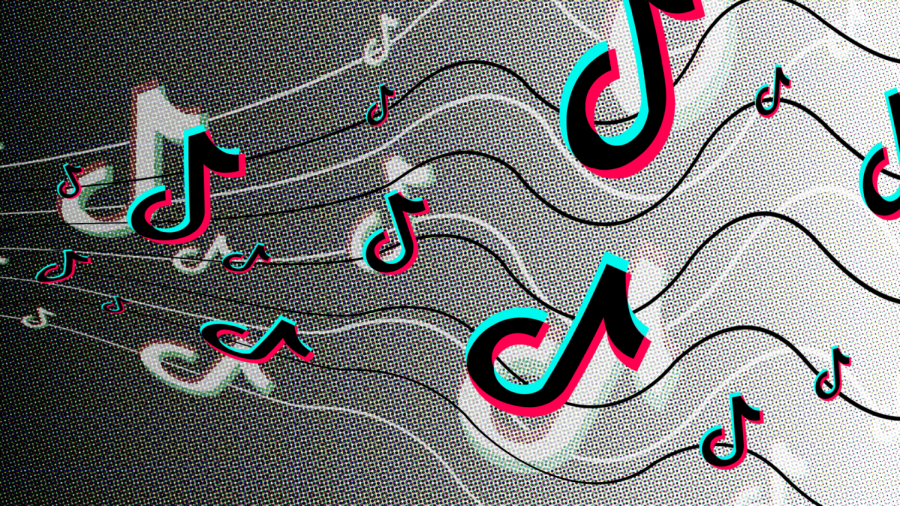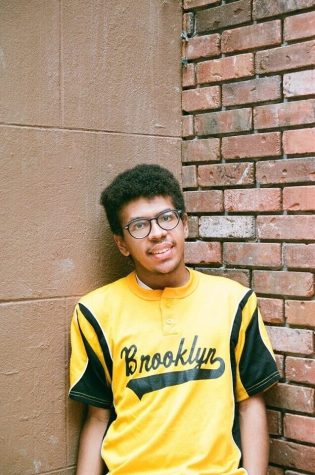TikTok, Music and the Privatization of Experience
The belief that experience of music should be left to a particular generation perpetuates gatekeeping
February 18, 2022
TikTok was the most downloaded app across iOS and Android platforms in 2021. During that year, the social media platform had a billion monthly users. The app has considerable influence on social media trends and internet behavior, and one of its most potent influences is on music.
The short song or audio clips attached to the videos are crucial to the content viewing experience. TikTok’s musical selection has implications that exist outside of the confines of the app; they can also be seen on the music charts. In 2021, 175 songs that were viral on TikTok made the Billboard Hot 100. Many contemporary artists were present, such as Megan Thee Stallion, Olivia Rodrigo and Doja Cat.
On the other hand, there were also older songs present on the Hot 100. There are two categories for these older songs: “comeback” songs and “classic” songs. Comeback songs are between five and 25 years old, such as Britney Spears’ 2007 song “Gimme More” and Destiny’s Child’s 1999 hit “Bills, Bills, Bills.” Classic songs were released more than 25 years ago, from Billy Joel’s “Zanzibar” to Boney M’s “Rasputin,” both of which were released in 1978.
Like kindergarteners who refuse to share their toys, some people enjoy when a certain object is theirs and theirs alone, disregarding the wants of others.
Almost half of TikTok’s userbase is between 10 and 29 years old, so these older songs are now reaching a younger audience who may not have listened to them were it not for their TikTok popularity.
As with all social media platforms, TikTok has its disadvantages. The app is notorious for being addicting, thanks to its short videos and precise algorithm, which certainly do not increase the attention span of viewers, who already have an attention span shorter than that of a goldfish. However, this trend of renewed attention to music that has fallen out of popularity is one of the better consequences of the app.
Of course, not everyone is a fan of these classic songs becoming viral on TikTok. It is not hard to find older people who listened to these songs when they were released decades ago and are critical that they are now background noise for new memes or dance moves. Instead of appreciating that a song now has a longer and more complex legacy, many instead lament that reappropriation by younger people has “ruined” the song.
This phenomenon is not exclusive to TikTok and can be seen throughout the entertainment industry, reemerging whenever there is a reboot of a new film or series. It stems from a reactionary possessiveness of the past, with many arguing that the way a form of entertainment was experienced years ago is inherently better than the way it is being consumed today. These sentiments are usually expressed through a desire for “nostalgia” or “authenticity.”
Naturally, there are instances in which the contemporary use of media might be for the worse. A person doesn’t have to be born in the 1970s to think that “Just the Two of Us” is performed better by Bill Withers than Will Smith, for example.
Nonetheless, there are times when it seems like the problem for these critics is not content but circumstance, with that circumstance being exposure to these songs via the internet instead of another format. Like kindergarteners who refuse to share their toys, some people enjoy when a certain object is theirs and theirs alone, disregarding the wants of others.
The fact that we have access to recorded music at all is a modern miracle, and one can only imagine how many songs have been lost to time. Rather than lament that musical experience is not the domain of one era alone, it should be celebrated that multiple generations can enjoy the same song played and heard in the same way. In other words, listen on!












